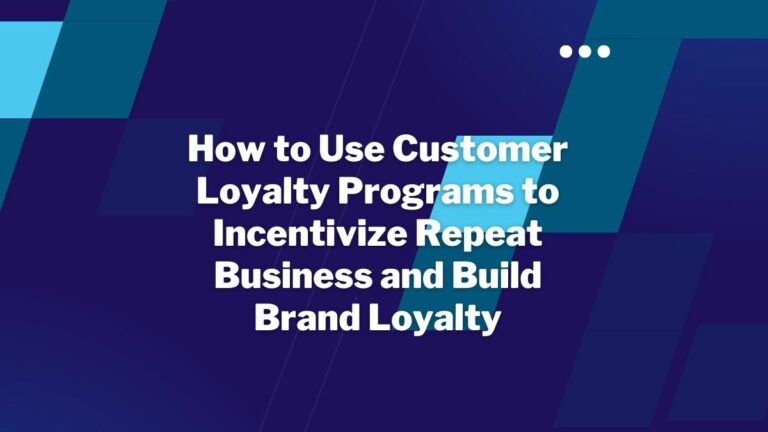
How to Become a Thought Leader to Showcase Your Expertise and Gain Exposure
Understanding how to become a thought leader can be a game-changer. It’s not just about being an expert; it’s about becoming a trusted authority who can shape industry trends, inspire others, and gain significant exposure. Our comprehensive guide explores the strategies and steps to help you become a thought leader in your field.
Defining Thought Leadership
Thought leadership goes beyond expertise. It involves having a unique perspective and the ability to articulate and share your insights. Thought leaders are respected influencers who drive conversations, challenge conventions, and provide innovative solutions.
Differentiating Thought Leaders from Industry Experts
While industry experts possess deep knowledge and experience, thought leaders take it a step further. They actively contribute to their field, share their expertise, and consistently generate valuable ideas that shape the industry’s direction.
The Role of Thought Leadership in Personal Branding
Thought leadership and personal branding go hand in hand. By establishing yourself as a thought leader, you elevate your brand and differentiate yourself from competitors. In addition, it’s an opportunity to showcase your expertise, credibility, and unique perspective to a broader audience.
Identifying Your Expertise

Assessing Your Knowledge and Skills
Start by evaluating your knowledge and skills objectively. Identify your strengths, weaknesses, and areas where you excel. Understanding your expertise will help you carve out a niche where you can establish thought leadership effectively.
Identifying Your Unique Perspective
What sets you apart from others in your industry? Discover your unique perspective—whether it’s a fresh approach, a different way of solving problems, or a new angle on existing concepts. This distinct viewpoint will be the foundation of your thought leadership journey.
Niche Selection for Thought Leadership
To become a thought leader, focusing on a specific niche is essential. First, narrow down your expertise and target audience. By narrowing your focus, you’ll have a better chance of building a loyal following and gaining recognition within your chosen niche.
Building a Strong Personal Brand
Crafting Your Personal Brand Story
Your personal brand story is the narrative that defines who you are, what you stand for, and the value you bring. Craft a compelling brand story that communicates your expertise, passion, and the unique value you offer as a thought leader.
Establishing Credibility and Trust
Credibility is the currency of thought leadership. Build trust by consistently delivering high-quality content, sharing valuable insights, and demonstrating your expertise through tangible results. Be transparent, authentic, and accountable in all your interactions.
Defining Your Target Audience
To maximize your impact, it’s crucial to define your target audience. First, understand their pain points, challenges, and aspirations. Then, tailor your content and messaging to resonate with your audience, ensuring that every piece of content provides value and addresses their needs.
Extracting Insights from Competitor SEO Campaigns
Your competitors’ SEO tactics can provide valuable lessons and inspiration for your campaigns. First, investigate their on-page optimization techniques, such as keyword usage and internal linking strategies. Next, explore their off-page optimization efforts, including guest blogging, influencer collaborations, and local SEO tactics. By studying their SEO campaigns, you can identify and incorporate successful strategies into your SEO endeavors.
Creating Valuable Content
Choosing the Right Content Formats
Diversify your content formats to engage your audience effectively. Experiment with blog posts, videos, podcasts, infographics, and social media content. Adapt your content to suit different platforms and cater to the preferences of your target audience.
Researching and Generating Original Ideas
Stay ahead of the curve by conducting thorough research and staying updated with industry trends. Find gaps in existing knowledge and develop unique insights that challenge the status quo. Strive to provide fresh perspectives and actionable ideas that resonate with your audience.

Developing a Content Strategy
A well-defined content strategy is vital for thought leadership success. Outline your goals, target audience, key messages, and desired outcomes. Plan a content calendar that includes educational, informative, and thought-provoking content. Consistency is vital; establish a regular publishing schedule to keep your audience engaged.
Developing Your Online Presence
Building an Engaging Website or Blog
Your website or blog is the central hub for your thought leadership journey. Create a professional and user-friendly website showcasing your expertise, features valuable content, and allows visitors to connect with you quickly. Optimize your website for search engines to increase discoverability.
Leveraging Social Media Platforms Effectively
Social media is a powerful tool for expanding your reach and connecting with your audience. First, choose the platforms most relevant to your target audience and create engaging profiles. Then, share your content, participate in industry discussions, and build relationships with influencers and followers.
Engaging with Your Audience through Online Communities
Become an active participant in online communities and forums relevant to your industry. Share your insights, answer questions, and contribute valuable information. Engaging with your audience in these communities establishes your authority and helps you build a network of like-minded professionals.
Networking and Collaboration
Finding Opportunities to Connect with Other Thought Leaders
Networking with other thought leaders provides invaluable opportunities for growth and collaboration. Attend industry conferences, seminars, and networking events. Connect with influencers through social media and establish meaningful relationships. Actively seek out opportunities to learn from and collaborate with established thought leaders.
Collaborating on Projects and Content
Collaboration with other thought leaders can amplify your reach and impact. Identify potential collaborators and explore collaboration opportunities on projects, guest blog posts, podcasts, or joint webinars. Sharing expertise and resources with fellow thought leaders enhances your credibility and exposes you to new audiences.

Leveraging Partnerships for Mutual Growth
Strategic partnerships with relevant organizations or brands can provide mutual benefits. Identify potential partners whose values align with yours and explore collaborative initiatives. For example, joint events, co-authored content, or cross-promotion can expand your reach and establish you as a trusted authority.
Speaking Engagements and Events
Identifying Speaking Opportunities
Speaking engagements offer a powerful platform to showcase your expertise and gain exposure: research conferences, seminars, and industry events where you can deliver presentations. Submit proposals, highlight your unique perspective, and emphasize the value you bring as a speaker.
Preparing and Delivering Impactful Presentations
Delivering a captivating presentation is crucial for making a lasting impression. Define clear objectives, structure your content effectively, and have it with confidence. Incorporate storytelling, visuals, and interactive elements to engage your audience and leave a lasting impact.
Maximizing the Benefits of Attending Industry Events
Attending industry events provides opportunities for networking, learning, and staying updated with industry trends. Actively participate in panel discussions, workshops, and breakout sessions. Engage with attendees, thought leaders, and industry experts to expand your network and establish yourself as a thought leader.
Writing and Publishing a Book
The Benefits of Authoring a Book
Authoring a book is a significant milestone in establishing yourself as a thought leader. It positions you as an expert in your field and provides a tangible asset that can attract a wider audience. In addition, a book is a comprehensive platform to share your insights and ideas.
Planning and Writing Your Book
Plan your book meticulously by outlining chapters, defining key themes, and structuring your content. Next, conduct thorough research, support your ideas with evidence, and provide actionable takeaways for your readers. Finally, dedicate consistent time and effort to write, edit, and refine your manuscript.
Publishing and Promoting Your Book
Choose a publishing route that aligns with your traditional or self-publishing goals. Next, work with professional editors and designers to ensure the quality of your book. Finally, develop a robust marketing strategy to promote your book through social media, online platforms, signings, and speaking engagements.
Thought Leadership in the Digital Age

Leveraging Technology and Tools for Thought Leadership
Embrace technology and leverage tools that enhance your thought leadership journey. Utilize content management systems, analytics platforms, and automation tools to streamline your content creation and distribution processes. Stay updated with emerging technologies that can amplify your reach and impact.
Harnessing the Power of Video and Podcasts
Video and podcasts are powerful mediums for thought leadership. First, create engaging video content that shares your insights, interviews industry experts, or provides educational content. Then, start a podcast where you can delve deep into industry topics, interview thought leaders, and share your unique perspective.
Optimizing Content for Search Engines and Discoverability
Implement search engine optimization (SEO) techniques to make your content discoverable online. Conduct keyword research, optimize your website and blog posts, and focus on creating valuable, keyword-rich content. By optimizing for search engines, you increase your chances of reaching a broader audience.
Cultivating Thought Leadership Offline
Hosting Workshops and Training Sessions
Organize workshops or training sessions to share your expertise in a hands-on setting. Provide practical knowledge, interactive activities, and opportunities for participants to learn from you. Hosting workshops lets you connect directly with your audience, establish yourself as an authority, and foster meaningful relationships.
Participating in Panel Discussions and Industry Forums
Actively engage in panel discussions and industry forums where your insights can contribute to the conversation. Share your expertise, challenge conventional wisdom, and provide innovative solutions to industry challenges. These platforms allow you to showcase your thought leadership and connect with industry peers.
Contributing to Industry Publications and Journals
Writing for industry publications and journals establishes your credibility and expands your reach. Submit articles, research papers, or opinion pieces to reputable publications in your field. Focus on providing valuable insights, sharing thought-provoking ideas, and addressing critical industry issues.
Measuring and Evaluating Your Impact
Establishing Key Performance Indicators (KPIs)
Define measurable metrics that align with your thought leadership goals. For example, Key Performance Indicators (KPIs) may include website traffic, social media engagement, email subscriptions, speaking engagements, or book sales. Establishing KPIs allows you to track your progress and evaluate the impact of your thought leadership efforts.
Tracking and Analyzing Metrics
Use analytics tools to track and analyze the performance of your content, social media campaigns, and overall thought leadership initiatives. Gain insights into audience engagement, content reach, and conversion rates. Then, regularly review the data and adjust your strategy based on the findings.
Adjusting Your Strategy Based on Insights
Data-driven decision-making is crucial for refining your thought leadership strategy. Use the insights gained from tracking metrics to identify areas for improvement, capitalize on successful tactics, and adapt your approach to better serve your audience. Flexibility and agility are essential in maintaining thought leadership in a dynamic landscape.
Overcoming Challenges and Roadblocks
Dealing with Imposter Syndrome
Imposter syndrome, feeling inadequate despite your achievements, is common among thought leaders. Instead, recognize your accomplishments, celebrate successes, and surround yourself with a supportive network. Embrace a growth mindset and continually remind yourself of the value you bring to your field.
Managing Criticism and Handling Negative Feedback
Thought leaders are not immune to criticism. Respond to negative feedback with grace and professionalism. Take constructive feedback as an opportunity to learn and grow. Focus on the positive impact you’re making and maintain confidence.
Staying Motivated and Persistent
Becoming a thought leader is a long-term journey that requires persistence and dedication. Set clear goals, break them down into manageable steps, and celebrate small victories. Surround yourself with a supportive community, seek inspiration from other thought leaders, and stay motivated by reminding yourself of your positive impact.

Thought Leadership Ethics and Responsibility
Upholding Integrity and Authenticity
Maintaining integrity and authenticity is crucial for thought leadership success. Be transparent about your expertise, sources, and affiliations. Provide accurate information, cite your references, and avoid misrepresentation. Build trust by consistently aligning with your values and delivering on your promises.
Balancing Self-Promotion and Providing Value
While self-promotion is essential for thought leadership, it should be balanced with providing genuine value to your audience. Focus on sharing insights, offering solutions, and addressing their needs. Avoid excessive self-promotion and ensure that your content delivers meaningful and actionable information.
Being Mindful of the Impact on Your Audience
Thought leaders are responsible for considering the impact of their words and actions on their audience. Be empathetic, inclusive, and respectful in your interactions. Recognize the power of your influence and strive to create a positive and inclusive environment that fosters growth and learning.
Leveraging Thought Leadership for Business Growth
Monetizing Your Thought Leadership
Thought leadership can create lucrative opportunities for monetization. Explore speaking engagements, consulting services, coaching programs, online courses, or premium content offerings. Develop a clear value proposition and pricing strategy reflecting your expertise and unique insights.
Generating Leads and Attracting Clients
Establishing thought leadership can significantly enhance your lead-generation efforts. You can attract clients who resonate with your expertise through valuable content, speaking engagements, and networking. Focus on building relationships, providing value, and showcasing your ability to solve their problems.
Creating Opportunities for Professional Growth
Thought leadership opens doors to professional growth and advancement. By establishing yourself as a trusted authority, you increase your chances of being invited to prestigious events, joining advisory boards, or collaborating with influential organizations. Embrace these opportunities to expand your reach and further enhance your thought leadership.

Closing Notes
From understanding thought leadership to building a solid personal brand, creating valuable content, and leveraging various platforms, each step is crucial in establishing yourself as a trusted authority. By following these strategies and staying committed to your journey, you can become a thought leader and make a lasting impact in your industry.
Digital Results would be happy to help you with your digital marketing needs. Get in touch for a free 30-minute consultation—one of our experts will walk through how we can help optimize your search engine optimization (SEO).
Ready to Grow Your Search Engine Results?
Let Digital Results assist you in your SEO strategy and help
deliver the search engine results you need.






